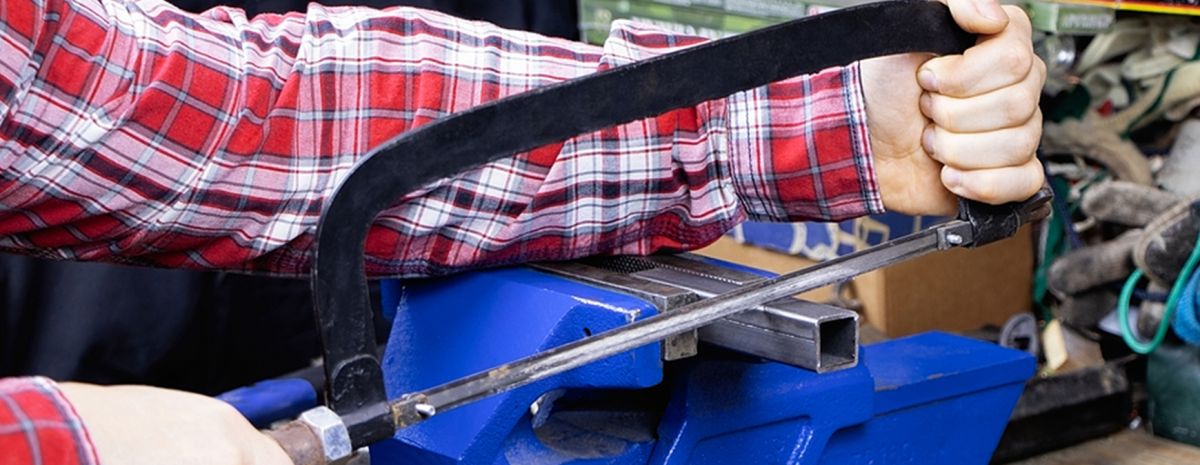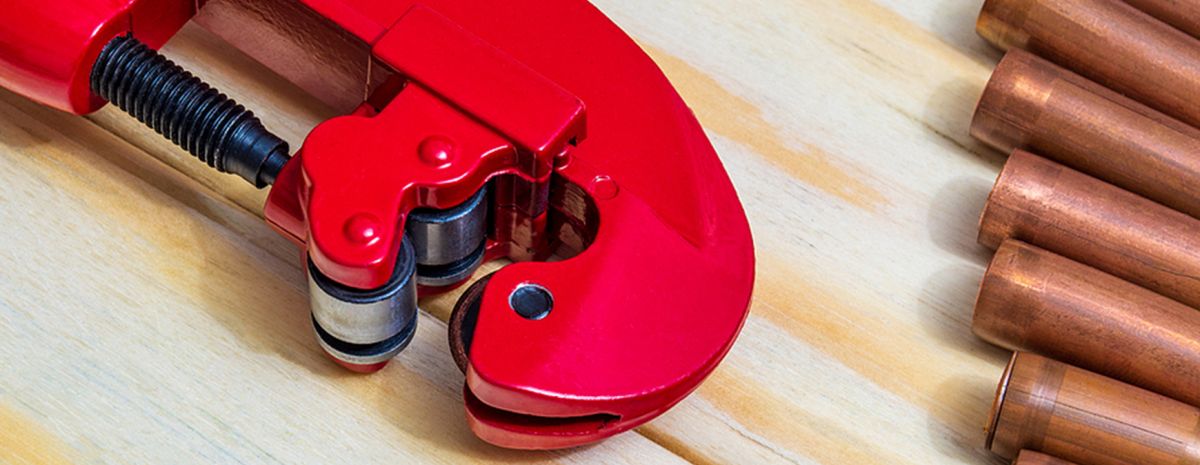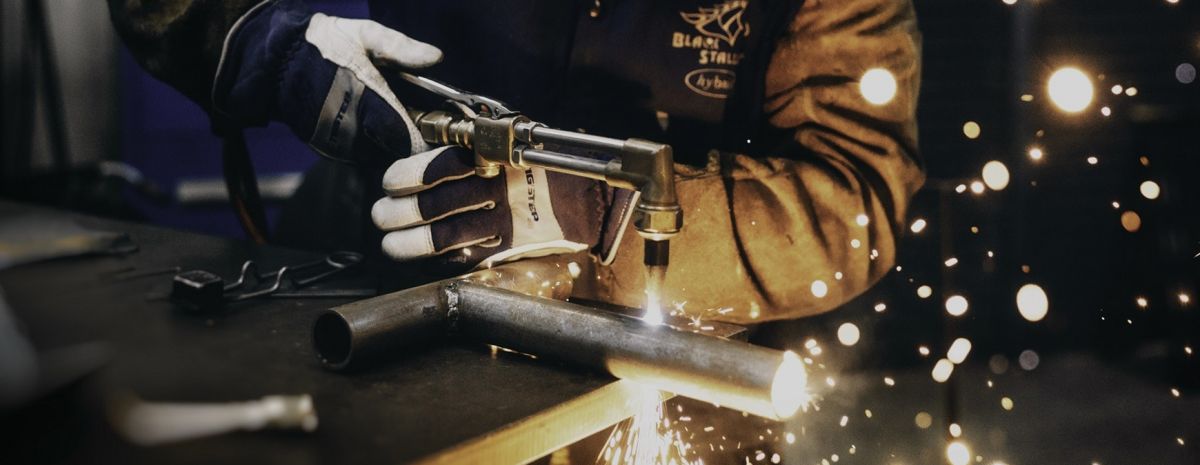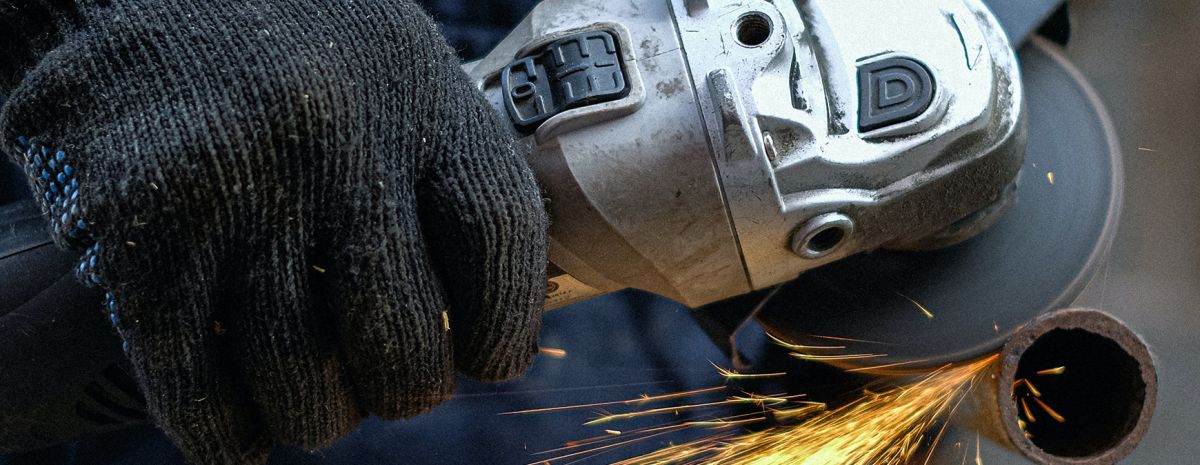TWS is a Great Training Option for Everyone
Learn more about how we can prepare you to advance your career.
Pipefitters are skilled trades workers who specialize in installing and maintaining pipe systems, usually in industrial or commercial settings.1 Part of a pipefitter’s job is to cut large pipes and then assemble and install the pieces in buildings using design specifications.2
In order to cut industrial pipes to the right size, pipefitters may use a variety of cutting tools.3
Here are 4 common types of pipefitter cutting tools.
1. Hacksaw

Have You Considered a Career in the Skilled Trades?
Fill out the form to recieve a no obligation info packet.
A hacksaw is a fine-toothed saw designed for cutting metal.3 Hacksaws can be used to cut nearly any size of pipe made out of metal or plastic.4 This is a versatile pipefitter tool that can be used to cut pipe by simply moving the blade through the metal pipe backwards and forwards.5
Hacksaw blades come in different sizes for different types of metal.5 The unit of measurement for hacksaw blades is teeth per inch (tpi).5 For example, a lower tpi of 14 can be used for aluminum or softer metals, and a higher tpi of 32 can be used for steel tubing.5
There are specific types of hacksaws:3
- Panel hacksaws, used for sheet metal
- Junior hacksaws, with a half-size blade
- Power hacksaw, with an electric motor3
2. Manual Pipecutter

A pipecutter (sometimes also called a tube cutter) is another type of hand tool pipefitters can use. Pipecutters are known to leave cleaner cuts on the outside of the tube or pipe. However, they may be more limited with the types of pipes they can cut.4
A manual pipecutter generally has one stationary support and one adjustable support that would be mounted. Depending on the design, a pipecutter might have a roller wheel or movable cutting wheel.6
The tool works by rotating it around the pipe and tightening it repeatedly until the pipe is cut all the way through.4
3. Cutting Torch

Oxy-fuel cutting is a process that uses a fuel gas (such as propane or gasoline) and pure oxygen to cut metals. When the fuels combine, the combustion creates a very hot flame that can be triggered by the pipefitter and applied to the metals at hand.7
The cutting torch is the tool that the pipefitter holds and manipulates to make the cut. The torch is connected to regulators and hoses that contain the oxygen source and fuel source. The flame heats the metals enough to allow the pipefitter to cut the metals.7
A similar process can also be used to weld metals together. It’s called oxy-fuel welding.7
4. Angle Grinder

An angle grinder is a versatile handheld power tool that can be used in a lot of different ways during metal fabrication, including cutting, grinding, finishing and polishing.8
This tool generally has a rapidly spinning cutting wheel, powered by electricity through a cord or battery.8,9
Angle grinders can come in many different sizes, models and brands.8,9 For cutting metal pipes, the type of disc, or wheel, needed will depend on the hardness, thickness and type of metal. For example, a thicker disc would be required to cut cast-iron steel than aluminum.8
Other Pipefitting Tools
These are four of the common tools that might be in a pipefitter’s toolkit. Each of these types of tools may have variations meant for specific kinds of pipes or jobs.10
And there are many other tools that might be used at any point in a pipefitter career, such as files, scrapers, chisels, drills and shears.11 Not to mention a host of pipefitter measuring tools.
Professional Pipefitting Training Tools
A pipefitter gear package is included as part of the Professional Welder with Pipefitting program at Tulsa Welding School.12
You can call an Admissions Representative at 1-888-765-5555 to find out which specific tools are included in the pipefitter gear package. Pipefitter training can be completed in 10 months and equips students with both tools and hands-on skills suited for entry-level jobs in the field.13
1https://www.bls.gov/ooh/construction-and-extraction/plumbers-pipefitters-and-steamfitters.htm#tab-2
2https://resources.workable.com/pipefitter-job-description
3https://en.wikipedia.org/wiki/Hacksaw
4https://en.wikipedia.org/wiki/Pipecutter
5https://www.metals4u.co.uk/blog/how-to-cut-metal-with-a-hacksaw
6https://toolguyd.com/how-to-use-a-rotary-tubing-pipe-cutter/
7https://en.wikipedia.org/wiki/Oxy-fuel_welding_and_cutting
8https://www.nortonabrasives.com/en-gb/resources/expertise/why-angle-grinder-essential-tool
9https://www.familyhandyman.com/project/how-to-use-an-angle-grinder/
10http://www.wheelerrex.com/products/pipe-cutters-and-tools/index.html
11http://www.engineersgallery.com/tools-used-fitting-shop/
12https://www.tws.edu/wp-content/uploads/tws-school-catalog.pdf
This blog has been labeled as archived as it may no longer contain the most up-to-date data. For a list of all current blog posts, please visit our blog homepage at https://www.tws.edu/blog/







